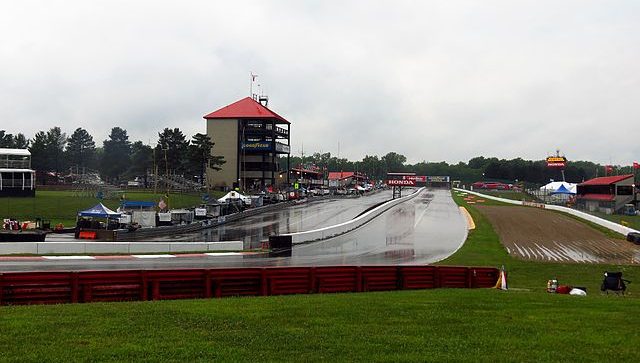Alex Rossi wins another race in dominant fashion, and your humble host isn’t really interested in him. At least not this week. I mean, he certainly earned the win, but like his win at the Indy 500 it was strategy-based and not like “I’m going to run circles around everyone”-based.
No, that was the plan for Sebastien Bourdais. And he drove magnificently on Sunday.
Much as Rossi was “the show” at the Phoenix race earlier this year, Bourdais was grabbing the most attention at Mid Ohio. A mistake in qualifying led to him starting the race at the back of the 24-car field, and from the moment the green flag dropped he put on a clinic on how to make your way through a road course. That he finished in 6th is memorable, that he did so in a caution free race and gained no positions during pit stops is jaw-dropping.
Which got me to thinking: what exactly is the prime an Indycar driver’s career?
Without any hard evidence I’ve generally thought it was early 30s, where many drivers start to develop a savvy but cautions approach to overtaking. They learn more about their cars and how to make them go fast, or save fuel, or set up for a given course. Maybe that’s not based on auto racing so much as sports in general, where often an athlete has mastered their skills before their body starts to fail them.
And although Indycar drivers are most certainly athletes, the skills that would fail them are not things like foot speed or injury recovery. It’s grip strength, stamina, and reflexes, and those things certainly seem to last more than a bit past the early 30s.
Look at Bourdais. He was clearly as good or better than any driver this week, and this guy is half a year from turning 40. He may not be in the championship hunt, but I don’t think there’s anyone who thinks this guy is “past his prime”. For goodness sakes, he’s a competitive entry for Dale Coyne Racing. I mean, if you watched the Mid Ohio race, you know that of which I am speaking. Or writing. Or whatever.
But more than Bourdais, how about Scott Dixon? He leads the points standings (shocking, I know) at the ripe old age of 38. So not only is he possibly on his way to another series title, he may be the most sought after free agent at the end of the season. He’s probably going to be the highest-paid driver in the series (if he isn’t already) and he’s certainly not going to get a 1-year contract.
Then there’s Will Power. He’s got 2 wins (including The 500) and 2 poles this year, and at 37 he’s hanging out in 4th in the standings. He probably won’t win the championship this year, but like Dixon he’s still an annual contender. Does he look like he’s gotten any worse lately?
And what of Ryan Hunter-Reay? He’s a few months older than Power and a mere 8 points behind him in the standings. It seems like he’s in the Top 5 every weekend. Does that 37-year-old look over the hill?
Heck, even last year then 42-year-old Helio Castroneves was finishing within striking distance of the championship.
There is much to be made about young American drivers like Ross and Josef Newgarden, and there’s a very good chance one of those two ends up as the 2018 champion. But there’s also a good chance one of these old guys emerges victorious as well, because they certainly aren’t approaching their expiration dates as drivers.
This week’s Honorable Mentions include:
Everyone, for another round of caution-free racing!
And no one, other than Bourdais. He was that special.
Final Lap: Henceforth I may or may not refer to Alexander Rossi as “half donut” after his, uh, victory celebration.

